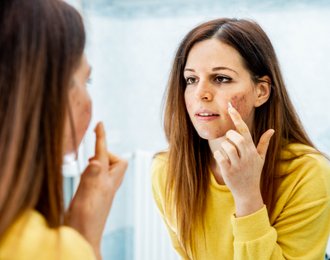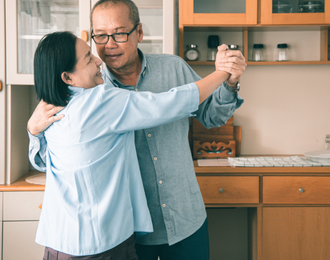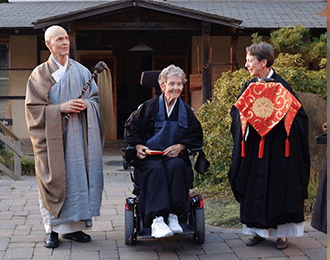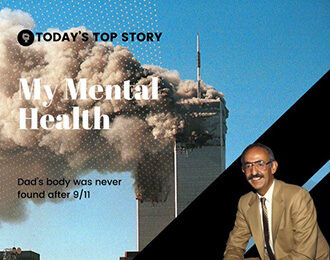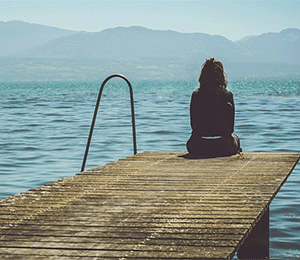The Facts on LGBT Aging
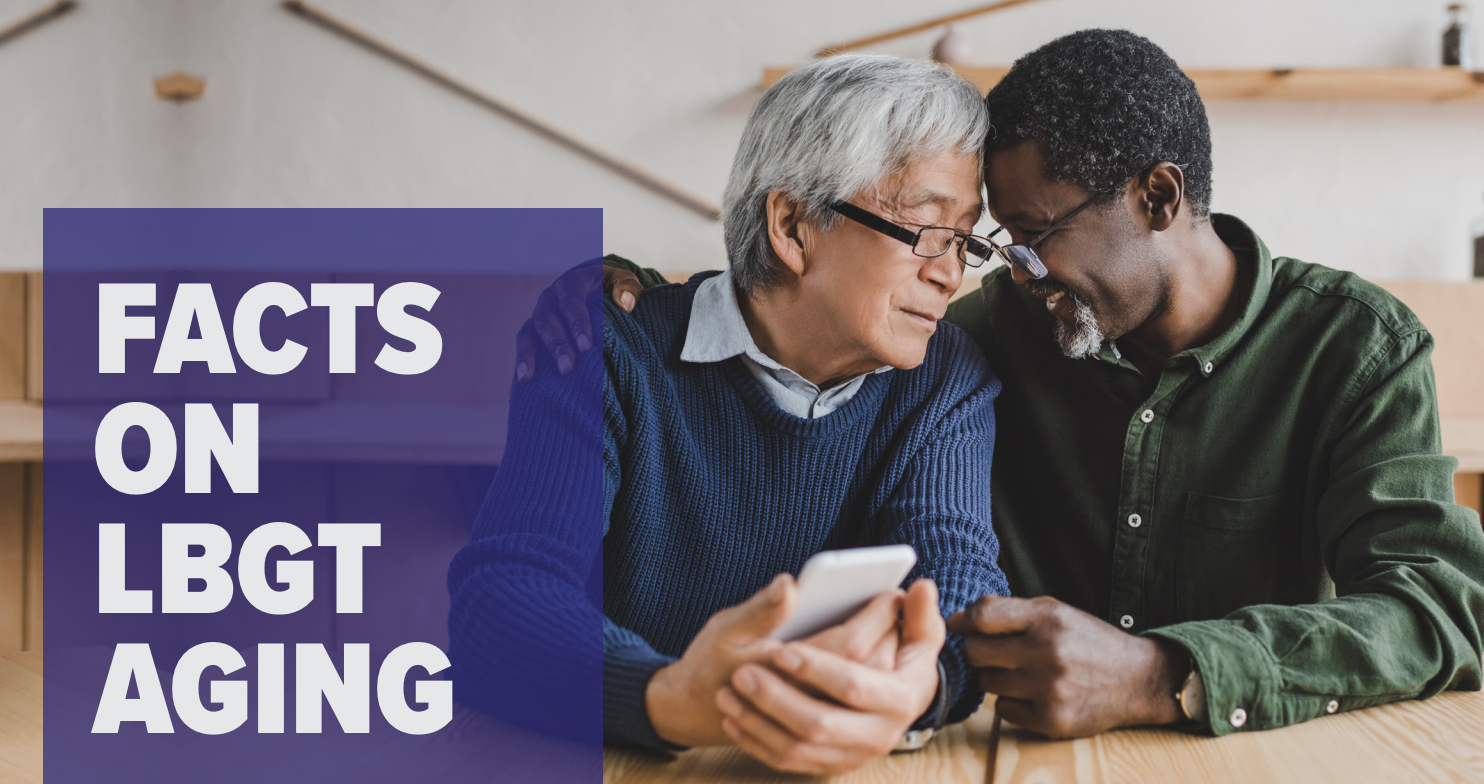
Sage – Updated for September 2021
Author: Sage Associate
Caregiving
Caregiving can be a rewarding but sometimes challenging experience. Because LGBT older people tend to rely on families of choice, their care networks are often structured differently than those of their non-LGBT peers. LGBT people face unique obstacles in both giving and receiving care, from healthcare laws that privilege biological families to a lack of resources for LGBT-specific needs.
- 21 percent of older LGBT people have provided care to friends, compared to only 6 percent of non-LGBT older adults.
- LGBT people become caregivers at a higher rate than non-LGBT people, and make up 9% of the caregivers in the United States.
- LGBT caregivers are more likely to be caring in isolation, which can exacerbate stress and lead to caregiver burnout.
Cultural Competency
LGBT elders are significantly less likely than other older adults to reach out to senior centers, meal programs, and other vital services, and may even be reluctant to access medical care. After decades of experiencing discrimination and harassment, many simply assume they will not be welcome in these environments.
- Many LGBT people have reported delaying or avoiding necessary medical care because they fear discrimination or mistreatment by health care staff.
- Nearly 1 in 4 transgender people report having to teach their health care provider about transgender issues in order to receive appropriate care, and 15% report being asked invasive or unnecessary questions unrelated to the health care they are seeking at the time.
- 88 percent of LGBT older people say they would feel more comfortable with long-term care services if they knew staff had been specifically trained about the needs of LGBT patients. More than two thirds say this would make them feel much more comfortable.
Discrimination
LGBT older people came of age at a time when simply being openly LGBT could get them arrested, fired, or worse. As such, they have experienced discrimination based on their perceived or actual sexual orientation and gender identity on many fronts. Moreover, they’ve lived through many years in which this discrimination was condoned and even encouraged by society in the form of laws, policies, and cultural norms. 82 percent report experiencing at least one instance of victimization, such as threats, harassment, or even physical assault.
- About two-thirds of LGBT older people have experienced victimization at least three times in their lives.
- More than half of LGBT older people report being discriminated against in employment and/or housing.
- It’s been reported that LGBT older people have received inferior, neglectful health care or have been denied health care altogether.
- Research has shown that repeated experiences of discrimination can lead to long-term negative health outcomes.
Health Care
Ongoing experiences of discrimination and prejudice often lead to what is commonly referred to as Minority Stress, and it has been well documented that such experiences can profoundly impact both mental and physical health. Not surprisingly, LGBT older people experience significant health disparities:
- Research has repeatedly shown that LGBT people have higher rates of poor physical health and mental distress.
- 41 percent of LGBT older people report having a disability, compared to 35 percent of heterosexual older adults.
- A national study of transgender people found that in the prior year, 23% of respondents avoided going to a doctor when they needed to because they feared being mistreated, and 33% did not go because they could not afford it.
HIV/AIDS
HIV disproportionately impacts the LGBT community, and LGBT older people are no exception. Thirty years ago, the idea that someone with HIV would live decades was unimaginable; now people with HIV are living well into their golden years.
- In 2018, 17% of all new HIV diagnoses in the U.S. were in people aged 50 and older.
- Researchers estimate more than 50 percent of patients with HIV have an HIV associated neurocognitive disorder, which can impact memory, motor skills, and other aspects of cognitive function, as well as cause depression or psychological distress.
Housing
Appropriate housing is a cornerstone of wellness, and a major concern for many older adults. Unfortunately, bias and discrimination can make it more difficult for LGBT older people to find housing that is safe, affordable, and conducive to aging well.
- In a matched-pair test across 10 ten states, 48 percent of same-sex couples experienced adverse treatment when seeking senior housing.
- Nearly one-quarter (23%) of transgender individuals report having experienced some form of housing discrimination in the past year.
- 21 states and 5 territories have no explicit laws prohibiting housing discrimination on the basis of sexual orientation and/or gender identity.
Financial Security
Discrimination can negatively impact an individual’s opportunities in education, employment, housing stability and much more. All of this leads to decreased financial stability and less (if any) accumulation of wealth. Many LGBT older people have experienced these inequities throughout their lifetime, and the cumulative effects are clear:
- In general, LGBT people are poorer and have fewer financial resources than their non-LGBT counterparts.
- Research has shown that LGBT people are likelier to be subject to employment discrimination, making their earnings—and their Social Security payments—lower.
- One-third of LGBT elders live at or below 200% of the federal poverty level.
Social Isolation
Social connectedness is an important factor in healthy aging, impacting happiness, health and even lifespan. But LGBT older people, who are more likely to live alone and have smaller social networks, are particularly vulnerable to social isolation.
- 59 percent of LGBT older people report feeling a lack of companionship and 53 percent report feeling isolated from others.
- Research has shown that loneliness and isolation are associated with poor physical health. Some experts have equated the health risks of prolonged isolation to those of smoking 15 cigarettes a day.
- 25 percent of SAGE care management clients in New York City report having no one to call in case of an emergency.
Wellness
Wellness affects health outcomes and encompasses positive habits such as physical activity, abstaining from cigarettes and alcohol, and receiving regular check-ups from a physician. In the same way that Minority Stress impacts physical health, it also takes its toll on mental health and overall wellness.
- Nearly one in three LGBT people smoke, a rate that is more than 50% higher than the general population.
- LGB older people are significantly more likely to drink alcohol excessively than heterosexual older adults, and transgender older adults are more likely to drink excessively than their nontransgender counterparts.
- 39% of LGBT older adults have had suicidal thoughts, and 2 of every 5 transgender people have actually attempted suicide in their lifetime.
Despite all of these challenges, LGBT older people are living vibrant, full lives throughout every part of the country and around the world. They were the pioneers who stood up and pushed back at the Stonewall uprising, and the caregivers who stood by friends and loved ones through the height of the AIDS epidemic. They are models of resilience, celebrating their identities while persevering through adversity and helping to bring about incredible change for all LGBT people over just a few short decades.
